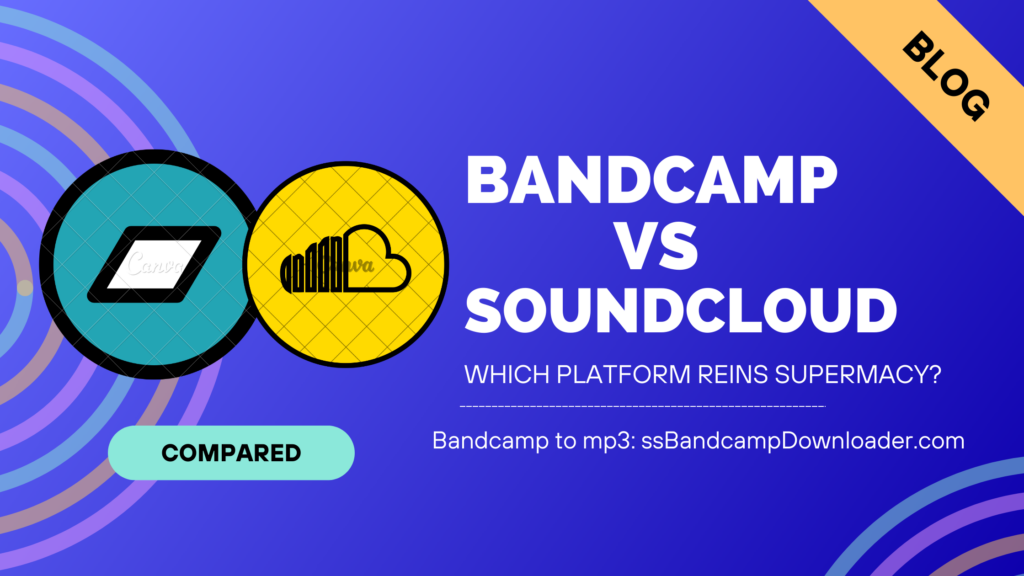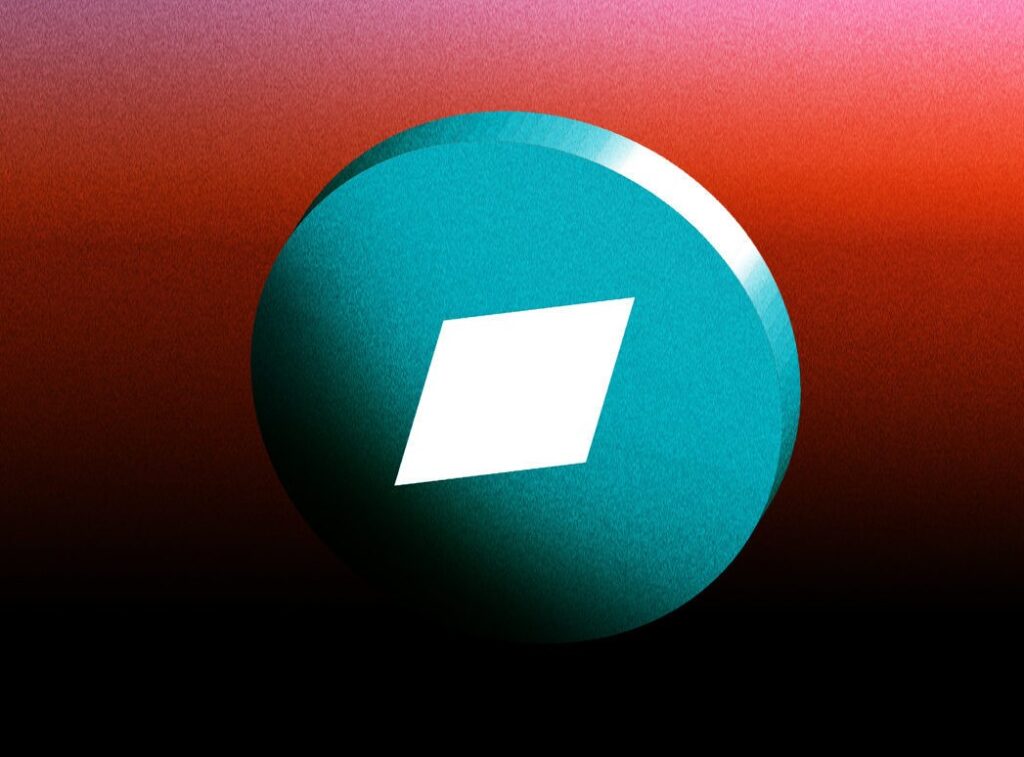The digital age has revolutionized the music industry, offering musicians unprecedented opportunities to share their art with the world. Two prominent platforms, Bandcamp and SoundCloud, stand at the forefront of this transformation, each offering distinct advantages and features.
In this exploration, we delve into the intricate world of music distribution, comparing Bandcamp’s unique sales-focused approach with SoundCloud’s social-sharing ecosystem. By the end of this article, you’ll gain a comprehensive understanding of these platforms and be better equipped to make an informed choice, ensuring your music reaches the right audience in the ever-evolving landscape of the digital music industry.

Bandcamp vs Soundcloud Compared
| Feature | Bandcamp | SoundCloud |
|---|---|---|
| Purpose | Bandcamp is primarily a platform for artists to sell and stream their music, with a focus on independent and emerging artists. | SoundCloud is a platform that allows artists to upload and share their music, offering a mix of independent and mainstream content. |
| Music Catalog | Emphasizes independent and emerging artists, offering a wide range of genres, including niche and underground music. | Features a mix of independent and established artists, with a diverse range of music genres and styles. |
| Streaming Subscription | Bandcamp offers a subscription service called “Bandcamp Plus” that includes unlimited streaming, offline listening, and exclusive releases. | SoundCloud offers SoundCloud Go+ for ad-free listening and offline downloads. |
| Free Tier | Allows artists to offer free streaming of their music, but it may not be available for all songs. | Offers a free tier with ads, allowing artists to upload tracks for free listening by the SoundCloud community. |
| Purchasing Music | Allows users to purchase music, albums, and merchandise directly from artists and labels. | Primarily focused on streaming and discovery, with limited options for direct music purchasing. |
| Offline Listening | Bandcamp Plus subscribers can download music for offline listening. | SoundCloud Go+ subscribers can download tracks for offline listening. |
| Integration with Ecosystems | Limited integration with other streaming platforms and devices. | Offers integrations with various platforms, including DJ software, and has a wider presence in music industry ecosystems. |
| Music Discovery | Offers various tools for music discovery, including tags, genres, and user-generated lists. | Provides a platform for independent artists to gain exposure and has user-curated playlists and trending tracks. |
| Exclusive Content | Features exclusive releases and early access to music from independent artists. | Occasionally offers exclusive content, mainly from major artists. |
| User-Generated Content | Allows artists to create and share their playlists and content, and users can follow their favorite artists. | Encourages user-generated content, enabling artists to interact with fans and receive feedback. |
| Advertisements | Typically ad-free for listening, although some artists may include promotional content. | Free tier includes ads, which can be removed with a SoundCloud Go+ subscription. |
| Pricing | Bandcamp Plus: $10/month (unlimited streaming, offline listening) | SoundCloud Go+: Starts at $4.99/month (ad-free, offline listening), with additional pricing tiers. |
| Availability | Available worldwide but may have limited availability in some regions. | Available in many countries with a broader international presence. |
| Platforms | Accessible through web browsers and dedicated apps for Android and iOS. | Compatible with web browsers and dedicated apps, with a strong mobile presence. |
Bandcamp’s History and Founding Principles
Bandcamp emerged onto the music scene in 2008, founded by Ethan Diamond and Shawn Grunberger. The platform was established with a clear mission: to empower independent musicians by providing them with a user-friendly space to sell and distribute their music directly to fans. This marked a significant departure from traditional music distribution models that often left artists with minimal control and revenue.

From its inception, Bandcamp emphasized flexibility and artist-friendly policies. Musicians could set their own pricing, offer free downloads, and even bundle merchandise with their music sales. This approach allowed artists to experiment with various monetization strategies and connect directly with their fanbase.
Over the years, Bandcamp continued to expand its offerings, introducing features like the ability to crowdfund projects and sell physical merchandise. This growth solidified its reputation as a go-to platform for independent artists seeking creative autonomy and fair compensation for their work.
SoundCloud’s Origins and Its Early Growth
SoundCloud, founded in 2007 by Alexander Ljung and Eric Wahlforss in Berlin, Germany, initially set out to create a platform where musicians could easily share and collaborate on audio content. The platform quickly gained traction, primarily due to its simplicity and accessibility.
What made SoundCloud stand out was its focus on user-generated content and social networking elements. Musicians could upload their tracks, and listeners could comment, like, and share them easily. This created a vibrant, interactive community that fostered both creativity and collaboration.
As SoundCloud expanded, it attracted not only independent musicians but also established artists, making it a melting pot of diverse musical genres. The platform’s “freemium” model allowed users to upload and share tracks for free, while premium features like extended upload time and analytics were offered through subscription plans.
Both Bandcamp and SoundCloud had humble beginnings, but their unique founding principles and early growth trajectories shaped their identities and set the stage for their current roles in the music industry.
Features and Functionality
Bandcamp
Bandcamp is renowned for its versatile features tailored to independent musicians. One of its key strengths lies in music hosting and sales options. Artists can upload their tracks, albums, and even discographies with ease. This enables them to offer their music for streaming and download, giving fans the choice of how they want to consume it.
Customization and branding are other noteworthy aspects of Bandcamp. Musicians can personalize their artist pages, adding bios, photos, and album artwork. This level of customization allows for a unique and professional presentation, reinforcing the artist’s brand identity.
Bandcamp’s revenue sharing model is artist-friendly. The platform takes a modest percentage of sales, allowing artists to retain a significant portion of their earnings. This transparent approach has garnered praise from many musicians who appreciate the fair compensation they receive for their work.
SoundCloud

SoundCloud, on the other hand, is primarily known for its track uploading and sharing capabilities. Musicians can easily upload their music to the platform, making it accessible to a global audience. This simplicity has contributed to SoundCloud’s widespread adoption, especially among emerging artists.
SoundCloud’s social and community features are a major draw. Users can comment on tracks, like them, and share them across various social media platforms. This interactive environment fosters engagement between artists and fans, allowing for direct feedback and collaboration.
Monetization on SoundCloud is achieved through various means, including advertising and premium subscription models. While free users can enjoy the platform, SoundCloud Pro and Pro Unlimited subscriptions offer additional features like extended upload time and enhanced analytics for artists who want to take their music careers to the next level.
In essence, Bandcamp excels in providing artists with a platform to sell their music directly to fans while giving them control over pricing and presentation. SoundCloud, on the other hand, shines in its social and community aspects, making it a hub for music discovery and interaction among artists and listeners. Both platforms cater to different needs and preferences within the music industry.
User Experience
Bandcamp’s User Experience
Bandcamp offers a user-friendly experience that’s particularly appealing to artists looking for a straightforward platform to showcase and sell their music. The website’s design is clean and intuitive, making it easy for both artists and fans to navigate. The focus is squarely on music, with minimal distractions.
For artists, the process of uploading and managing music is relatively simple. They can create and customize their artist pages with ease, adding essential information, album artwork, and merchandise links. This level of control over branding helps artists establish a distinct online presence.

Fans also find Bandcamp’s interface hassle-free. They can explore music, listen to tracks, and make purchases without encountering intrusive ads or complex user interfaces. Bandcamp’s commitment to a clean and user-centric design is evident in its dedication to providing a seamless listening and shopping experience.
SoundCloud’s User Experience
SoundCloud, in contrast, is celebrated for its community-driven and interactive user experience. The platform’s interface is designed to encourage engagement and discovery. It’s easy for artists to upload tracks, and listeners can explore a vast array of music effortlessly.
SoundCloud’s social features, such as the ability to comment on tracks and follow favorite artists, create a sense of community. This engagement extends to the platform’s robust mobile app, allowing users to discover and share music on the go.
However, some may find SoundCloud’s interface to be less focused on aesthetics compared to Bandcamp. Given its emphasis on social interactions, the platform’s design can appear cluttered to those seeking a more streamlined experience.
In summary, Bandcamp excels in providing a straightforward, artist-centric experience with a focus on music sales, while SoundCloud offers a more community-driven and interactive platform with a broader emphasis on music discovery and engagement. The choice between the two platforms often comes down to the specific goals and preferences of musicians and listeners alike.
Pricing and Monetization
Bandcamp’s Pricing and Monetization
Bandcamp’s pricing and monetization model is renowned for its transparency and flexibility. The platform allows artists to set their own pricing for music and merchandise, giving them control over how they monetize their work. Here’s a breakdown:
- Free Accounts: Bandcamp offers free accounts to artists. They can upload and share music at no cost. Bandcamp only takes a revenue share when artists make sales, typically around 10-15%, depending on the type of sale.
- Paid Features: While the basic features are free, Bandcamp offers premium subscription options, such as Bandcamp Pro and Bandcamp Pro Unlimited, which provide additional tools and analytics for a monthly fee.
- Direct Sales: Artists can sell digital downloads, physical merchandise (like vinyl or T-shirts), and even offer bundles, allowing them to diversify their revenue streams.
- Crowdfunding: Bandcamp has a built-in crowdfunding feature that enables artists to raise funds for specific projects, further enhancing their monetization options.
SoundCloud’s Pricing and Monetization
SoundCloud’s monetization model differs from Bandcamp, primarily due to its freemium approach. Here’s how SoundCloud’s pricing and monetization work:
- Free Accounts: SoundCloud offers free accounts to both artists and listeners. Artists can upload and share their music without charge, while listeners can access a vast library of music for free.
- SoundCloud Pro: SoundCloud Pro subscription plans, including Pro and Pro Unlimited, are available to artists for a monthly fee. These plans offer benefits like extended upload time, enhanced analytics, and more promotional features.
- Advertising: SoundCloud generates revenue through advertising on its free tier. While this doesn’t directly impact artists, it helps support the platform’s free access model.
- SoundCloud Premier: SoundCloud Premier is SoundCloud’s monetization program that allows eligible artists to earn revenue from their music through advertising and listener subscriptions. This program is designed to reward artists for their content’s popularity.
Bandcamp offers a more direct and customizable approach to monetization, allowing artists to set prices and sell merchandise. SoundCloud, on the other hand, emphasizes free access for both artists and listeners, with monetization primarily coming from advertising and premium subscription models, including the SoundCloud Premier program for eligible artists. The choice between the two platforms often depends on the artist’s monetization goals and their willingness to engage with different pricing models.
Audience and Community

Bandcamp’s Audience and Community
Bandcamp’s audience and community primarily consist of independent musicians, dedicated fans, and music enthusiasts who appreciate a direct connection with artists. Here’s a closer look at Bandcamp’s audience:
- Independent Musicians: Bandcamp is a go-to platform for independent and DIY musicians who want to maintain control over their music distribution and sales. It attracts artists from various genres seeking a platform that aligns with their creative goals.
- Dedicated Fans: Bandcamp’s fanbase is characterized by its passion for music and a willingness to support artists directly. Fans often prefer Bandcamp for its transparent revenue-sharing model, knowing that a larger portion of their purchase goes to the artist.
- Music Enthusiasts: Beyond artists and their fans, Bandcamp appeals to music enthusiasts who enjoy discovering new and independent music. The platform’s “Discover” section and customizable fan profiles encourage exploration and engagement.
- Niche Communities: Bandcamp hosts various niche music communities, from underground electronic genres to experimental rock. These communities thrive due to the platform’s flexibility and support for a wide range of music styles.
SoundCloud’s Audience and Community
SoundCloud’s audience and community are known for their diversity and global reach, making it a hub for emerging artists and a broad spectrum of music enthusiasts:
- Emerging Artists: SoundCloud is a launching pad for many emerging artists looking to share their music with a global audience. Its accessibility and ease of use make it a popular choice for musicians just starting their careers.
- Listeners and Curators: SoundCloud caters to a vast listener base seeking new and diverse music experiences. Curators and music bloggers often use the platform to discover and promote emerging talent.
- Collaborative Community: SoundCloud’s community features, such as comments and collaborations, foster interaction between artists and listeners. This sense of engagement and interactivity sets it apart from more traditional music platforms.
- Global Reach: SoundCloud’s global presence means that artists can reach audiences worldwide, transcending geographical boundaries. This diversity contributes to a vibrant and eclectic music ecosystem.
Bandcamp’s audience and community are centered around independent musicians, dedicated fans, and music enthusiasts who value direct artist-fan connections and support. SoundCloud, on the other hand, boasts a diverse and global audience, making it a dynamic platform for emerging artists and music lovers seeking a wide range of music styles and experiences. The choice between the two platforms often depends on the artist’s goals and the type of community they aim to engage with.
Discoverability and Promotion
Discoverability and promotion on Bandcamp are primarily driven by the platform’s artist-centric approach and customization options:
- Search and Explore: Bandcamp offers a robust search and discovery feature that allows users to explore music by genre, location, and tags. This makes it easier for fans to find new music tailored to their preferences.
- Fan Profiles: Fans on Bandcamp can create profiles where they showcase their music collections and favorite artists. This not only helps artists understand their audience but also encourages word-of-mouth promotion as fans recommend music to each other.
- Customization: Bandcamp gives artists the ability to fully customize their artist pages, including background images, bios, and merchandise links. This customization allows artists to present their brand and music in a unique and professional manner.
- Direct Fan Engagement: Bandcamp facilitates direct interaction between artists and fans. Artists can communicate with fans through messages and newsletters, fostering a sense of community and loyalty.
- Recommendation Algorithms: Bandcamp’s recommendation algorithms suggest music to users based on their listening habits and preferences, aiding in music discovery.
on SoundCloud
SoundCloud’s discoverability and promotion features are geared toward fostering a vibrant and interactive music community:
- Reposts and Shares: SoundCloud’s social features, including reposts and shares, allow users to spread music virally. When an artist’s track is reposted by others, it gains exposure to a broader audience.
- Comments and Interactions: SoundCloud’s comment section enables listeners to engage with artists directly. This real-time feedback and interaction help artists build a dedicated following.
- User-Generated Playlists: Users can create and share playlists, further promoting their favorite tracks and artists. This grassroots approach to curation helps in music discovery.
- SoundCloud Charts: SoundCloud compiles charts based on user engagement, helping users discover trending and popular tracks within specific genres.
- Collaborations: SoundCloud’s collaborative features allow artists to work together on tracks, expanding their reach and cross-promotion opportunities.
Bandcamp prioritizes discoverability through search, customization, and recommendation algorithms, while SoundCloud focuses on fostering a dynamic community of listeners and artists who promote music through social interactions, reposts, and user-generated playlists. The choice between the two platforms often depends on an artist’s preference for either a more traditional sales-focused approach (Bandcamp) or a community-driven, interactive experience (SoundCloud) for promoting their music.
Case Studies and Success Stories
Bandcamp
- Amanda Palmer’s Independent Success: Amanda Palmer, a renowned artist and musician, made headlines by raising over a million dollars through a Kickstarter campaign to fund her album. She released it on Bandcamp, offering it directly to her fans. This direct-to-fan approach not only generated substantial revenue but also allowed her to maintain creative control.
- Chance the Rapper’s Breakthrough: Chance the Rapper, an independent hip-hop artist, used Bandcamp as a platform to release his mixtapes for free. His music gained widespread attention and acclaim, leading to major industry recognition and collaborations. Bandcamp served as a launching pad for his career.
- The Success of Tiny Desk Concerts: NPR’s Tiny Desk Concerts often feature independent artists who use Bandcamp to distribute their music. These performances, shared widely on social media, have catapulted artists like Tank and The Bangas to fame, showcasing the power of Bandcamp in promoting unique talent.
SoundCloud
- Post Malone’s Viral Breakthrough: Post Malone’s debut single, “White Iverson,” gained traction on SoundCloud and quickly went viral. This success led to a record deal and marked the start of his mainstream career. SoundCloud played a pivotal role in his initial recognition.
- SoundCloud Rappers and the Rise of SoundCloud Rap: A subgenre known as “SoundCloud rap” emerged on the platform, with artists like Lil Uzi Vert, XXXTentacion, and Lil Pump gaining popularity by uploading their music directly to SoundCloud. Their DIY approach and SoundCloud’s accessibility appealed to a new generation of listeners.
- Billie Eilish’s Early Uploads: Billie Eilish and her brother Finneas uploaded their music to SoundCloud before their meteoric rise to fame. Their early tracks garnered attention on the platform, contributing to their eventual global success.
In summary, Bandcamp and SoundCloud have played pivotal roles in the careers of many artists. Bandcamp’s emphasis on direct-to-fan sales has empowered artists like Amanda Palmer and Chance the Rapper, while SoundCloud’s viral nature has catapulted artists like Post Malone and Billie Eilish to stardom. These case studies demonstrate how both platforms can serve as valuable springboards for artists with different goals and approaches.
Copyright and Licensing

Copyright and Licensing on Bandcamp
Bandcamp is known for its artist-friendly approach to copyright and licensing:
- Ownership and Control: Artists on Bandcamp retain ownership and control over their music. They can choose the licensing terms for their tracks, whether it’s traditional copyright, Creative Commons licenses, or other variations. This flexibility allows artists to define how others can use their work.
- Transparent Rights: Bandcamp provides clear information to buyers about the rights associated with purchased music. This transparency helps both artists and fans understand how they can use the music legally.
- Content ID System: Bandcamp has a content ID system that helps protect artists from unauthorized use of their music on the platform. This system detects potential copyright violations and takes appropriate actions.
- Creative Commons Integration: Bandcamp seamlessly integrates Creative Commons licensing options, allowing artists to choose from various levels of sharing and reuse permissions. This feature caters to artists who want to encourage remixes and derivative works.
Copyright and Licensing on SoundCloud
SoundCloud also addresses copyright and licensing, but its approach differs due to its user-generated content nature:
- Copyright Infringement: SoundCloud has faced challenges related to copyright infringement due to its open nature. Major record labels have sometimes issued takedown notices for unauthorized uploads of their content.
- Content ID and Copyright Management: SoundCloud introduced its Content ID system to help rights holders protect their content. This system allows copyright owners to monetize or block content that uses their music without permission.
- SoundCloud Premier Monetization: SoundCloud Premier offers eligible artists the opportunity to monetize their original music through advertising and listener subscriptions. This program ensures that artists are compensated for their work.
- Remix and Collaboration Culture: SoundCloud has a vibrant remix and collaboration culture. Many artists encourage the sharing and reuse of their tracks, often with the understanding that remixes and derivative works are part of the platform’s culture.
Both Bandcamp and SoundCloud address copyright and licensing, but their approaches vary. Bandcamp emphasizes artist control and transparency, allowing artists to define licensing terms. SoundCloud, while also providing copyright protection, has faced challenges due to its user-generated content model, and it encourages remix and collaboration culture within its community. Artists should consider their preferences for licensing and copyright management when choosing a platform.
Conclusion | SoundCloud vs Bandcamp
In conclusion, Bandcamp and SoundCloud stand as distinctive pillars in the digital music landscape, each offering a unique set of features and opportunities. Bandcamp empowers artists with direct sales, customization, and transparent monetization, fostering strong artist-fan connections.
SoundCloud, on the other hand, thrives as a dynamic hub for music discovery and community engagement, particularly for emerging talents. The choice between these platforms hinges on an artist’s goals, preferences, and the nature of their music.
As the music industry continues to evolve, both Bandcamp and SoundCloud play vital roles, ensuring that musicians have diverse avenues to share their art and connect with their audience in this ever-changing digital era.
FAQs
Bandcamp is an online music platform that allows musicians to upload, share, and sell their music directly to fans. Artists can create their profiles, customize pages, set pricing, and offer both digital downloads and physical merchandise. Fans can discover music, listen to tracks, and make purchases, with artists receiving a significant portion of the revenue.
Yes, SoundCloud offers free accounts for both artists and listeners. Musicians can upload and share their music at no cost. This makes it a popular choice for emerging artists looking to promote their music to a global audience without the need for upfront fees.
SoundCloud offers a monetization program called SoundCloud Premier. Eligible artists can earn revenue through advertising and listener subscriptions. When listeners engage with your tracks, you have the potential to earn money, making it a viable option for artists to monetize their music on the platform.
Absolutely! Many artists use both platforms strategically. Bandcamp is excellent for direct sales and control over your brand, while SoundCloud is ideal for building a fanbase, engaging with listeners, and collaborating with other artists. Leveraging the strengths of each platform can help you reach a wider audience and achieve your music career goals.
Yes, both Bandcamp and SoundCloud have copyright protections in place. Bandcamp allows artists to choose licensing terms, including Creative Commons licenses. SoundCloud has a Content ID system to protect against unauthorized use of copyrighted material and offers tools for rights holders to manage their content.
